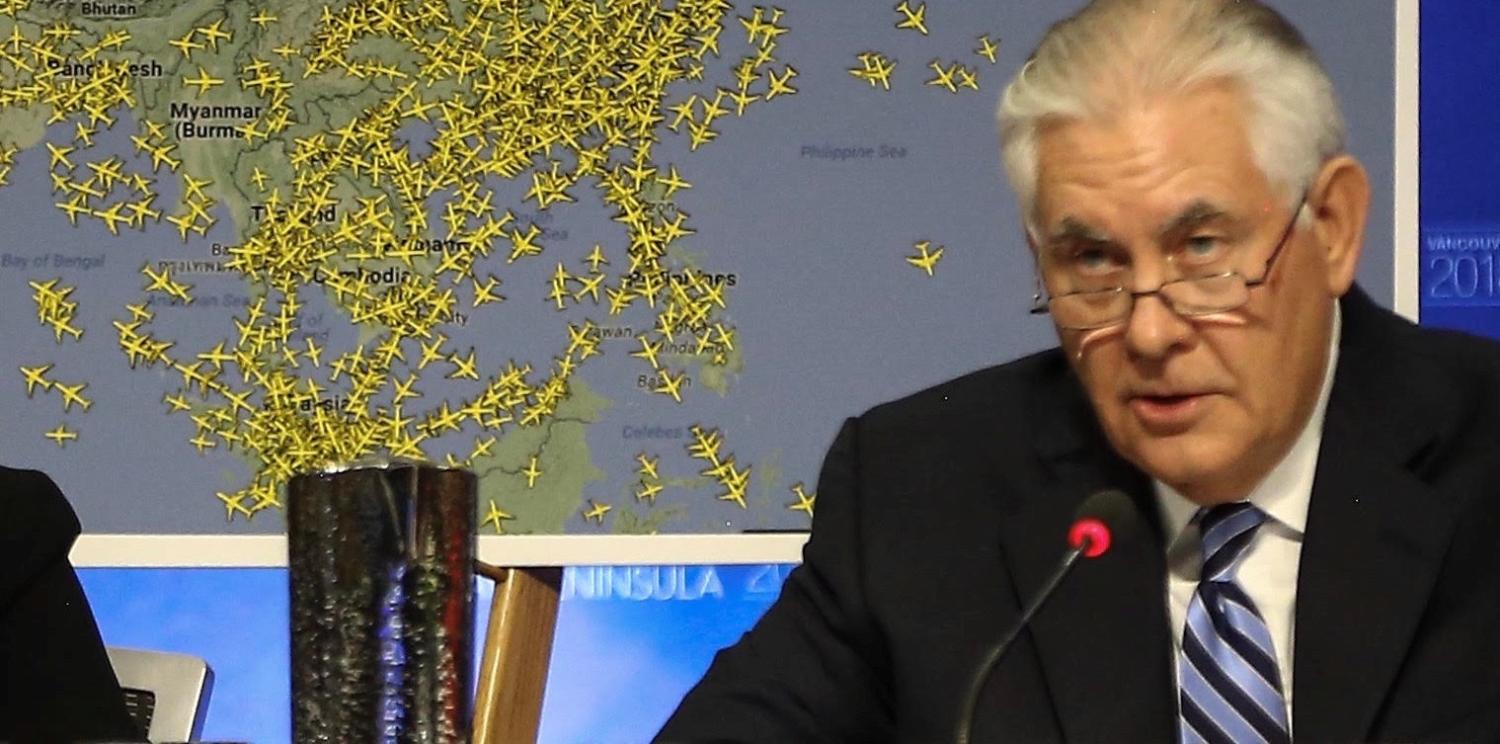Represented by Secretary of the Department of Foreign Affairs and Trade Frances Adamson, Australia was one of 20 countries that participated in a conference last week on coordinating international approaches to North Korea. Co-hosted by Canada and the US, and held in Vancouver, the conference had its roots in a US initiative to revitalise the multi-nation UN Command (UNC) in South Korea. The conference aimed to broaden diplomatic and military support for an international policy to apply pressure on Pyongyang to rein in its nuclear and missile programs.
The UNC is a legacy of the 16-nation coalition originally formed to fight on South Korea’s behalf in the 1950–53 Korean War. Around half of the countries participating in the Vancouver conference – including several “sending states” from the Korean War, including the US, Canada, UK, New Zealand, Greece, the Netherlands, and Turkey – sent foreign ministers as representatives, as did Japan and South Korea, though not part of the UN Command. The absence of Australian Foreign Minister Julie Bishop, while noted, was not seen as unduly significant.
However, Japan’s Kyodo News subsequently reported that in the lead-up to the Vancouver conference, China vigorously lobbied participating states not to attend, or to downgrade their representation. The report claims that “the degree of persuasion varied, possibly depending on how much each country’s economy relies on China”.
China’s economic leverage could plausibly account for South Africa’s decision to not send an official representative to Vancouver, despite Pretoria having only applied to rejoin the UNC in 2010. Ethiopia, which sent troops to Korea in 1950, likewise stayed home. South East Asia’s two UNC sending states, the Philippines and Thailand, were both represented, as might be expected of US treaty allies. But by not sending their foreign ministers, Manila and Bangkok may also have heeded Beijing’s “advice”, reflecting increasingly close relations with China.
Could it be that Canberra was similarly hoping to satisfy Washington’s minimum alliance expectations while tacitly currying favour with Beijing? It has been a tempestuous period in Australia–China ties, demonstrated again by the recent row over Senator Concetta Fierravanti-Wells’s comments on Chinese aid in the Pacific. In a sign of Canberra’s desire to reset relations with Australia’s largest trading partner, Prime Minister Malcolm Turnbull heaped conspicuous praise on China’s diplomacy in the South China Sea and North Korea when visiting Tokyo last week. In this context, Julie Bishop’s “no show” in Vancouver could be indicative of a two-steps-forward, one-step-back diplomatic approach, as Australia walks an increasingly treacherous path between the US and China.
Other factors could explain Bishop’s non-availability, including scheduling considerations. While I don’t have access to the Foreign Minister’s calendar, the only engagement recorded on her Twitter account close to the conference was opening a “join the dots” festival in Sydney on 15 January. Before that, the Foreign Minister was spotted enjoying the polo at Portsea on 13 January; so in theory she could have made a dash to Canada.
Alternatively, could Bishop’s absence have been a deliberate signal to the US of Canberra’s desire to distance itself from what some were billing as a “council of war” in Vancouver? That is unlikely. Australia prides itself on being one of America’s closest allies, and has a prominent military role in the UNC-Rear logistics headquarters in Japan. If Australia has reservations about US unilateral military action against North Korea, it would be better to make such representations directly, especially with Defense Secretary James Mattis present at the conference.
Although it is unclear whether Beijing was invited or not, China could hardly be blamed for staying away from the Vancouver Conference, given that Chinese troops originally faced the UNC as belligerents on the battlefield. But for Beijing to lobby so widely on an issue that is not among its sovereign “core” interests is a step up, and away, from any pretense of neutrality on the North Korea issue, and positions it increasingly at odds with Washington, which is now widening secondary sanctions on Chinese firms doing business with North Korea.
Australia, like the US, maintains that China has a unique role in finding a solution to the North Korean threat. Yet if Canberra did indeed succumb to such browbeating efforts by Beijing, on what the US currently identifies as its most urgent regional security concern, what does this say about where Australia’s allegiance lies?

